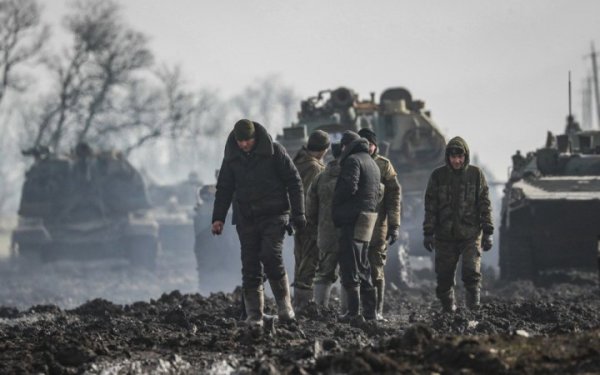Without documents, these people cannot contact the embassies of their countries and find themselves at the complete mercy of the Russians.

Illustrative photo
Politico journalists spoke with Among thousands of other foreigners, they signed a one-year contract to participate in the war on the side of the occupiers. One of the mercenaries reported that in exchange for agreeing to go to war, they were given Russian passports, and along with them – an obligation to fight not for a year, but until the end.
Jorge (the names of all mercenaries mentioned in the article have been changed) is currently fighting in the Kursk region. According to him, the term of participation in the war was changed not only for him.
“Now they tell us that since we are Russian citizens, we must continue to fight until the end of the war,” he told reporters.
Politico spoke not only with him, but with three other mercenaries and the families of five more. Some mercenaries claimed that they got into the war by deception: they were promised work in construction. Others admitted that they consciously decided to go to war. Mainly for the money.
Cuban mercenary David said he last saw his Cuban passport in October 2023, when it was confiscated by the military. His new Russian passport was soon taken away so that David could go fight without it. Some mercenaries have not been given passports even after a year of fighting.
“They don't want to let us go,” said Manuel, who was in the first wave of recruits for the war in Ukraine. His Cuban documents were taken away shortly after he arrived, and now he has only a military ID.
A Russian human rights activist told journalists that Manuel's situation is very typical: Russians take away documents from foreign mercenaries, leaving them without any at all. Thus, these foreigners find themselves completely at the mercy of Russia and cannot even contact the embassies of their countries.
“Foreign mercenaries should know that if they sign a contract with the Russian military or take their passports, they are signing up to fight in Ukraine indefinitely until they are killed, seriously wounded, or the Kremlin declares the operation over,” agreed Dara Missicotte, a defense analyst at the Carnegie Endowment for International Peace.
All the Cuban mercenaries interviewed by journalists were wounded, but they were sent back to fight. Some dug trenches and fortifications, but others were transferred to the front lines of battle, particularly in the Kursk region.
“Like every Cuban recruit interviewed by POLITICO, David suffered shrapnel wounds from Ukrainian drones or missiles but was sent back to the front after receiving treatment, sometimes before his stitches had healed. Pablo, who says he also has post-traumatic stress disorder, was treated in a hospital for an injury to his right hand when his commander told him he just needed to learn to shoot with his left,” the reporters reported.
According to Jorge, the man he took on his first trip to Russia more than a year ago was recently killed in rocket attacks. POLITICO confirmed the death was due to a relative in Cuba.
Spanish-language media outlets that work with the US report numerous casualties in Cuba. But in Cuba itself, such news never makes it to the airwaves. However, it was impossible to keep quiet about it, as relatives of the dead reported it on social media.
The mercenaries themselves added that Cuban soldiers often pay for the relatives of the deceased to fly in to remove the body.
In at least some cases, the Cuban recruits simply disappeared. Since neither Havana nor Moscow shows much interest in their fate, and they are ignored by human rights groups that help mobilized Russians, Cuban relatives living thousands of kilometers away are often forced to draw their own conclusions when their loved ones go to the SZCh.
- Russia recruits mercenaries not only from Cuba, but also from Nepal, India, Syria and other countries. Recruiting foreigners allows the Kremlin not to publicly announce the mobilization of its own citizens.
